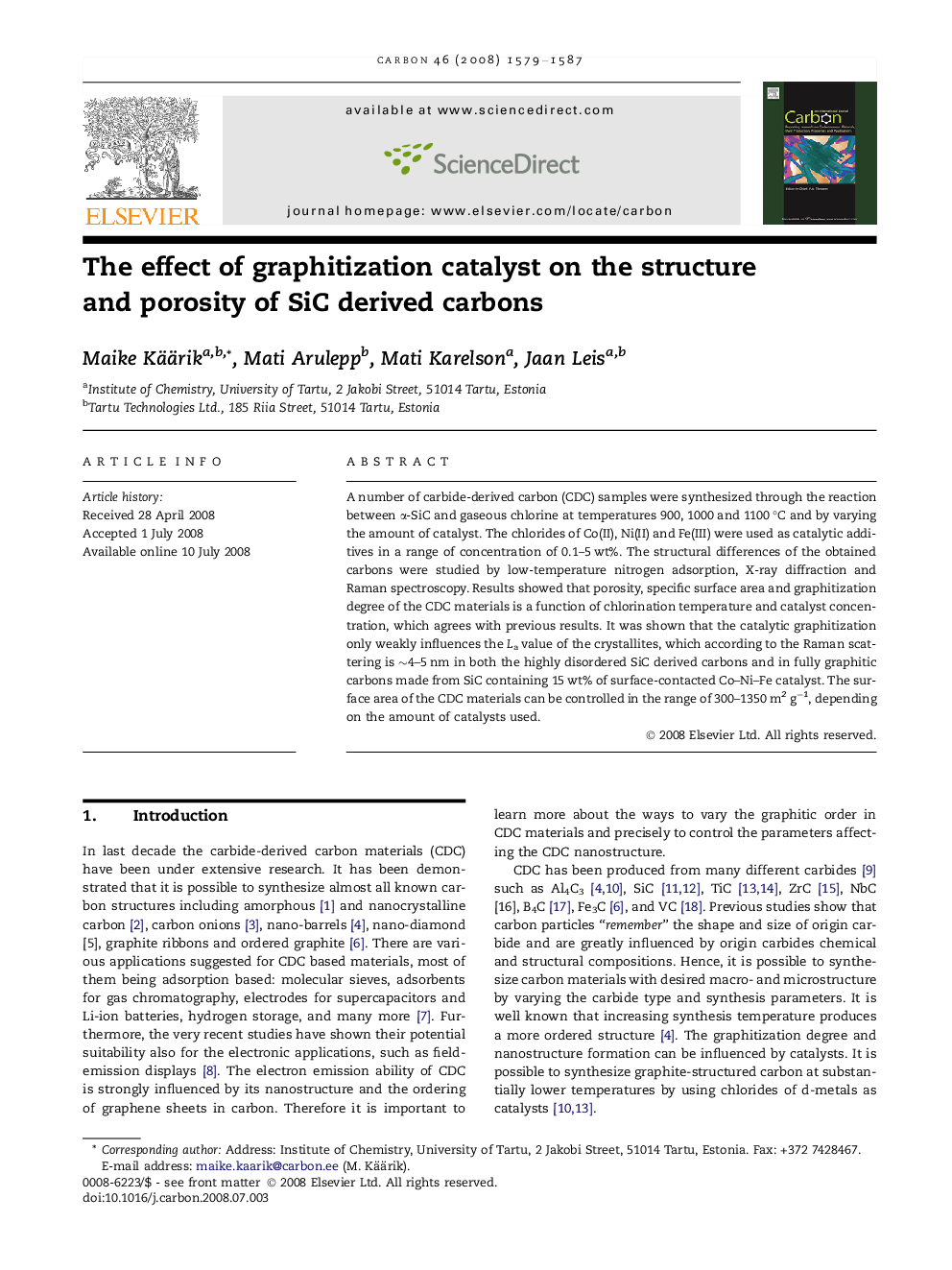| کد مقاله | کد نشریه | سال انتشار | مقاله انگلیسی | نسخه تمام متن |
|---|---|---|---|---|
| 1417879 | 985982 | 2008 | 9 صفحه PDF | دانلود رایگان |

A number of carbide-derived carbon (CDC) samples were synthesized through the reaction between α-SiC and gaseous chlorine at temperatures 900, 1000 and 1100 °C and by varying the amount of catalyst. The chlorides of Co(II), Ni(II) and Fe(III) were used as catalytic additives in a range of concentration of 0.1–5 wt%. The structural differences of the obtained carbons were studied by low-temperature nitrogen adsorption, X-ray diffraction and Raman spectroscopy. Results showed that porosity, specific surface area and graphitization degree of the CDC materials is a function of chlorination temperature and catalyst concentration, which agrees with previous results. It was shown that the catalytic graphitization only weakly influences the La value of the crystallites, which according to the Raman scattering is ∼4–5 nm in both the highly disordered SiC derived carbons and in fully graphitic carbons made from SiC containing 15 wt% of surface-contacted Co–Ni–Fe catalyst. The surface area of the CDC materials can be controlled in the range of 300–1350 m2 g−1, depending on the amount of catalysts used.
Journal: Carbon - Volume 46, Issue 12, October 2008, Pages 1579–1587